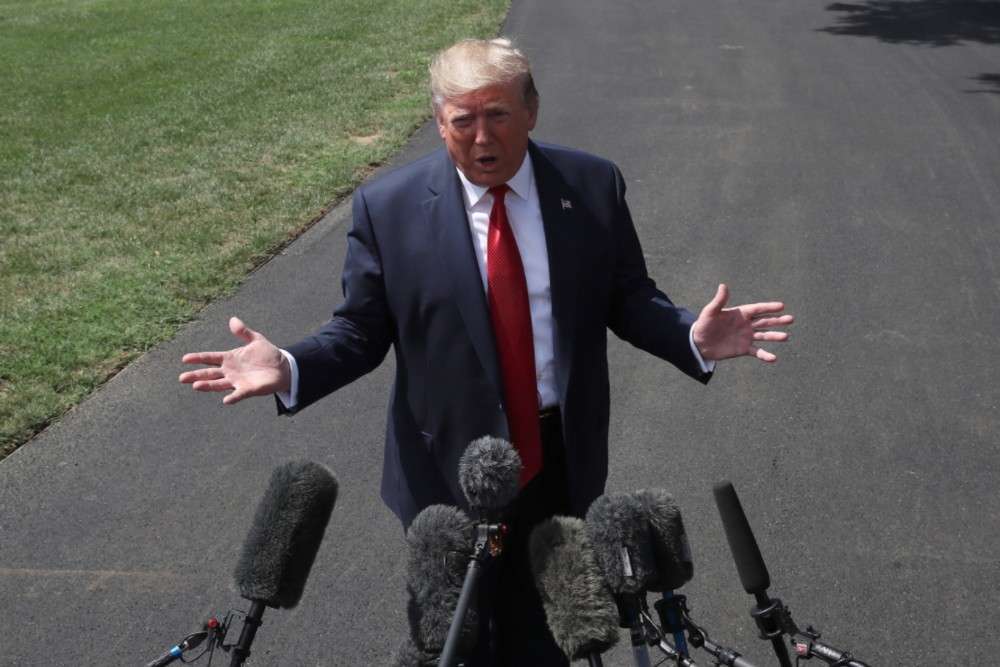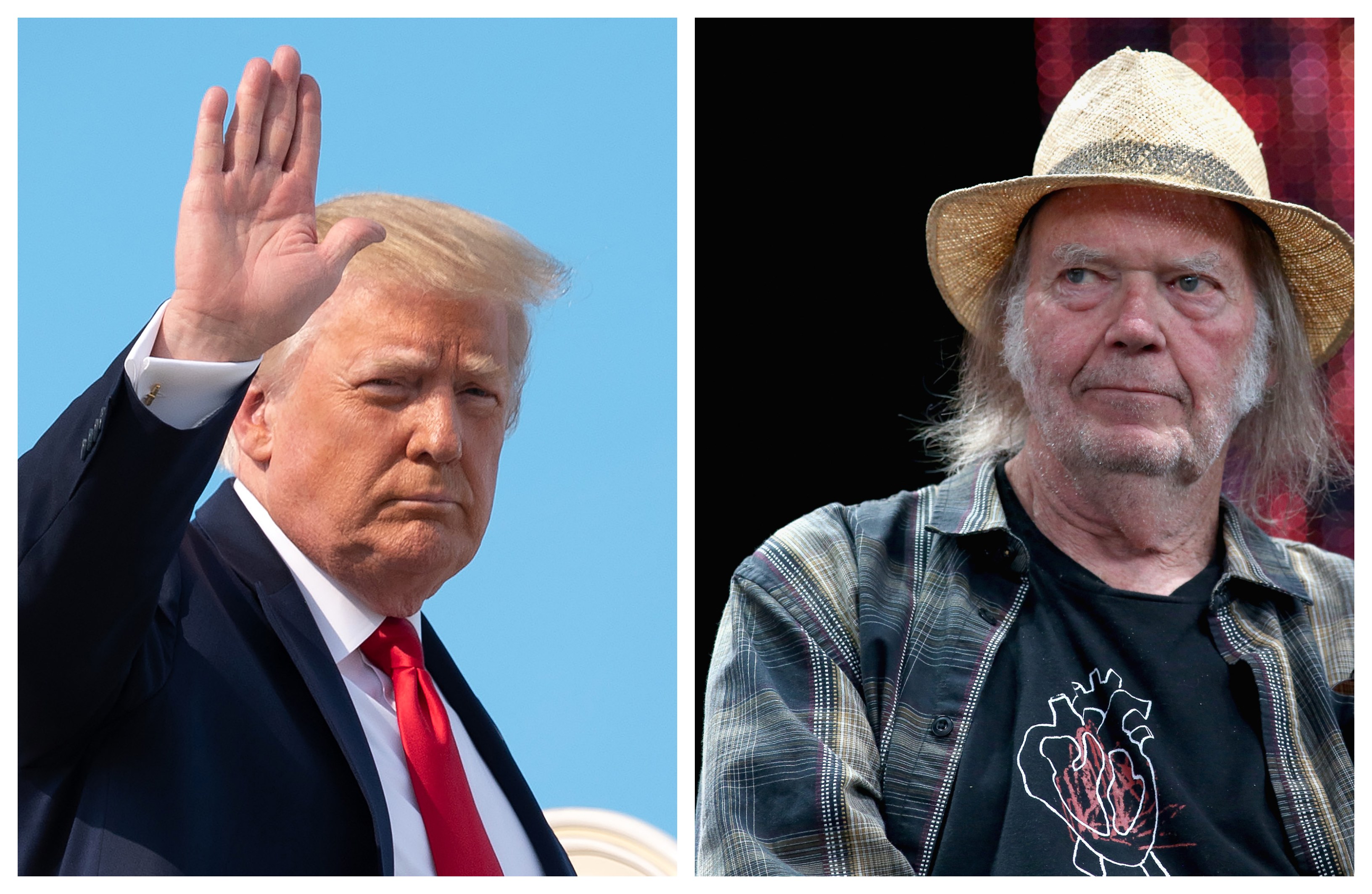Donald Trump held a typically crazy press gaggle today before leaving the White House to speak to the American Veterans convention in Kentucky. In addition to anointing himself “the chosen one” and throwing a tantrum over the prime minister of Denmark rejecting his bonkers bid to buy Greenland, the president claimed to have instructed the VA to purchase boatloads of a controversial drug designed to treat depression in order to reduce the epidemic of veterans commiting suicide.
When a reporter asked the president what his administration is doing to help prevent suicides among veterans, Trump said: “There’s a product that’s made right now that just came out by Johnson & Johnson which has a tremendously positive, pretty short term, but nevertheless, a pretty positive effect. I’ve instructed the head of the VA to go out and buy a lot of it, and we are buying a lot of it. Hopefully we’re getting it at a very good cost.”
The president added: “I guess it’s a form of a stimulant where if somebody is really in trouble from the standpoint of suicide, it can do something. It’s pretty well known. It just came out. It’s made, I believe, by Johnson & Johnson and we have calls in now to Johnson & Johnson… we’ve been dealing with them for two months on buying a lot of it.”
Beyond parody — Trump says his solution to the epidemic of veteran suicides is some new “stimulant” produced by Johnson & Johnson that he’s instructed the government to buy in large quantities pic.twitter.com/mFMwG6hpXa
— Aaron Rupar (@atrupar) August 21, 2019
The “stimulant” Trump is talking about is actually an anti-depressant. More specifically, it’s a nasal spray called Spravato which was derived from ketamine, the horse tranquilizer preferred by ravers across the world.
According to a study from the Center for Public Integrity, Spravato isn’t the wonder drug the president says it is:
During several years of trials, six people who had been treated with the drug died, as opposed to none on placebos. Three of the deaths were suicides. The FDA said it was difficult to conclude that the deaths were caused by the drug. Still, noted one psychiatrist, “It’s not heading in the direction supporting protection from suicides.”
Data from the drug’s trials shows it to be only slightly better than placebos in its performance. “The benefit isn’t much,” said Julie Zito, professor emerita of pharmacy and psychiatry at the University of Maryland, who cast one of the two no votes on the FDA advisory committee that approved the drug.
According to the report, patients must also stay in the doctor’s office for two hours after receiving the treatment because side effects include “hallucinatory, cardiac, and respiratory problems” that might need to be treated on site. Military Times reported that Trump administration pressured the FDA to approve the drug as quickly as possible despite studies proving that the drug’s effectiveness is questionable, at best. That last part surely has nothing to do with billionaire Johnson & Johnson heir and current ambassador to the UK Woody Johnson donating $1 million to Trump’s inaugural committee in 2017.





